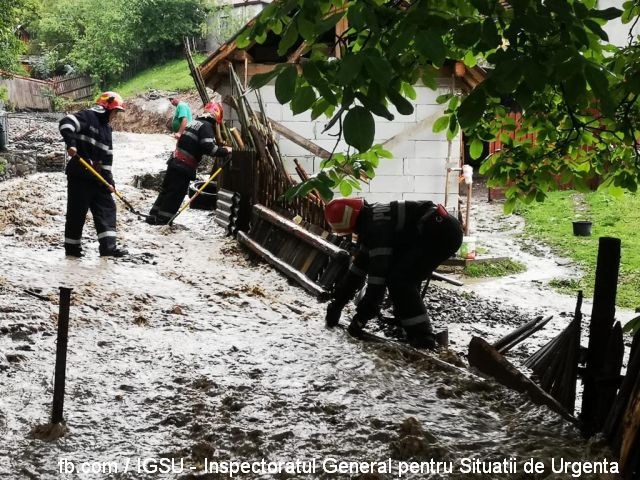Romania and climate change
The World Bank has published the Romania climate and development report.

Sorin Iordan, 25.10.2023, 13:50
Romania is very vulnerable to flooding and drought, and the impact of these calamities is felt in different sectors, according to the World Banks Romania climate and development report. The document, which was published on Tuesday, shows that since 1970 until 2021, floods were the most severe disaster associated with the weather in Romania in terms of number of events, persons affected and total damages. The annual average losses caused by floods could reach 1.7 billion euros, and in areas with significant flood risk more than 150,000 persons may be affected. The report warns that the availability of Romanias water resources is half the European average.
In 2022, Romania was faced with one of the worst droughts on record, and which disrupted the water reserves of 220 towns and villages, reduced by a third the hydro power energy production and put other forms of energy at risk, such as nuclear energy. It also reduced agricultural production by at least 25%, increased sevenfold the risk of forest fires and led to navigation restrictions on the river Danube. In this context, the World Bank believes there is a need for major investments in the safety of dams, the rehabilitation of damaged dams, retrofitting for new multi-purpose uses and adjustment to new hydrological regimes.
President Klaus Iohannis, who attended the debate held at the launch of the World Bank report, said the effects of climate change are becoming increasingly acute for Romanians and have a negative impact on the national economy. He believes there is potential to significantly improve the quality of peoples lives while going through the decarbonisation process needed to achieve climate neutrality. Klaus Iohannis:
„We will respond to the climate challenges through measures to adapt to the new reality and through mitigation measures, namely by reducing greenhouse gas emissions. Romania is part of the international climate transition processes that will inevitably bring about important changes in many sectors of our lives and activity. It is essential to ensure that the climate transition will be fair, inclusive and compatible with economic growth.”
The World Banks climate and development report also notes that if Romania takes measures to improve its resilience to climate change and reduce greenhouse gas emissions, it can raise its national income almost threefold in the next 30 years. The World Bank experts estimate that the investment needed for a decarbonized energy sector alone amounts to 356 billion dollars by 2050, accounting for around 3% of the countrys GDP. (CM)






























